Scottish Labour leadership: Who's in and who's out?
- Published
Johann Lamont has quit as leader of the Scottish Labour Party and a number of names have been mentioned as a possible replacement. Who is still in the running?

Jim Murphy
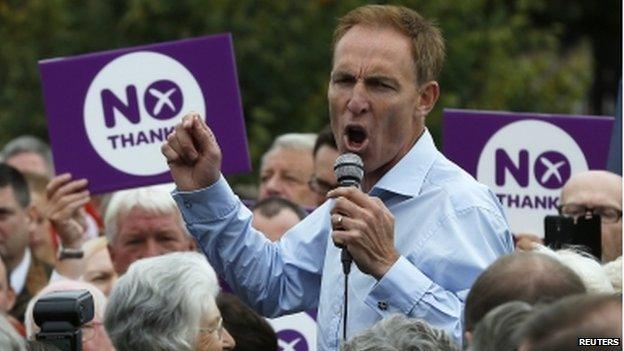
After a lengthy period of speculation in the press and rumours at Westminster, East Renfrewshire MP Jim Murphy has confirmed he will stand for the Scottish Labour leadership.
Mr Murphy, who is currently Labour's shadow international development secretary in the UK Parliament, gained a high profile as he fought a tough referendum campaign, touring 100 towns in 100 days to deliver the "No" message.
Confirming his candidacy with an interview in the Daily Record, external, he said: "I will be a candidate for Holyrood and I will also be a candidate for first minister."
Still only 47, he has been at Westminster for 17 years and served as Secretary of State for Scotland in the Labour government from 2008 to 2010.
Although his referendum role earned him much praise, it also marked him out as a divisive figure who may not be able to reach out to disaffected parts of the Labour heartlands.
In addition, the timing is awkward, as Mr Murphy has declared he would stand for election to Holyrood "in 2016 if not before" - but has not yet indicated whether or not he plans to stand in his current Westminster seat in the 2015 general election.
BBC Scotland political editor Brian Taylor asked: "If Jim Murphy is to stand and say 'my future lies at Holyrood', what exactly does he say to his constituents who are about to re-elect him, or possibly someone else, in May next year?"

Sarah Boyack

Sarah Boyack, currently Labour's local government spokesman at Holyrood, was the first candidate to announce that she was entering the running.
The 53-year-old is an experienced MSP who has represented Edinburgh Central constituency from 1999-2011, and Lothian region since the 2011 election.
She served as transport and environment minister in the first Labour-led Scottish Executive, helping to create Scotland's first national parks.
She survived an SNP-inspired vote of no confidence in 2001 over her decision to award trunk road maintenance contracts to private companies.
The decision was also opposed by some of her Labour colleagues but Ms Boyack said she had no choice but to accept the private bids, which were £200m cheaper than the local authority tenders.
This experience suggests that, while her Holyrood career may not always have been smooth, she knows how to weather a political storm.

Neil Findlay
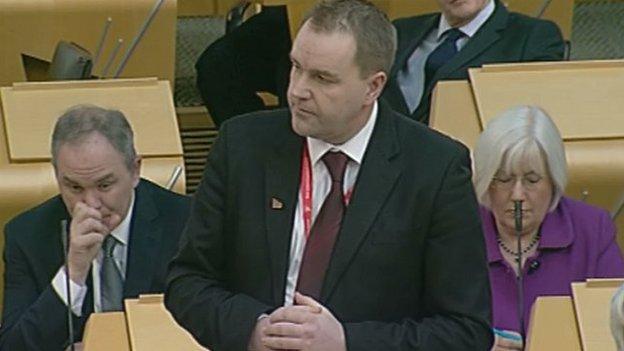
Neil Findlay, Labour's health spokesman at Holyrood, has become the second candidate to enter the race, having previously lobbied for Gordon Brown to bid for the leadership.
Announcing his candidacy, he said: "It is no secret that I wanted Gordon Brown to run but, since Gordon has ruled himself out, I now believe we need to have a wide ranging debate about the way forward for the Labour party but more importantly the country."
Elected for the first time as a list MSP for Lothian just three years ago, Mr Findlay was a bricklayer for ten years, before going to university and then becoming a modern studies and support for learning teacher.
With Nicola Sturgeon poised to take over the SNP, the left-winger has argued that Labour needs to be more radical in order to challenge a Scottish government under her leadership.
The 45-year-old is a member of the Red Paper Collective, a left-wing group that has urged Labour to go further in its proposals for more powers for the Scottish Parliament, and devolve income tax in full.
He has also called for full employment, the living wage, more apprenticeships and a national house-building programme - but will he get a chance to rebuild the Labour Party in Scotland?

Anas Sarwar
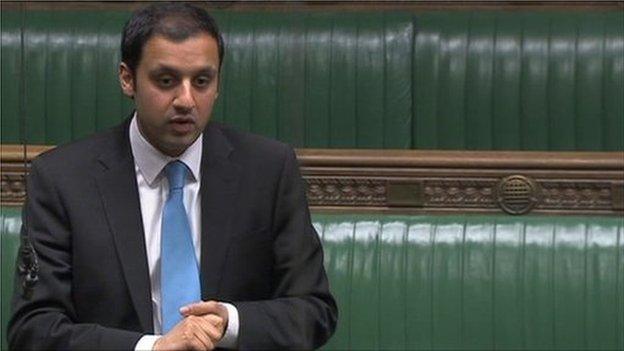
As deputy leader of Scottish Labour, Anas Sarwar took over as interim leader in the wake of Johann Lamont's resignation.
He ruled out taking on the job long-term but did indicate he wanted to continue as deputy, telling the BBC he wanted to focus upon running the leadership contest and on Labour's UK general election campaign.
However, Mr Sarwar announced at a Labour dinner on 30 October that he would step down as deputy leader, after what he described as much soul-searching.
With a Westminster MP, Jim Murphy, seen by many as the front-runner, Mr Sarwar realised the prospect of the party in Scotland being led by two MPs posed a problem.
He said he wanted Scottish Labour to elect "a new leadership team focused on winning in 2016".
The 31-year-old has been the Labour MP for Glasgow Central since 2010, succeeding his father Mohammad Sarwar, the first-ever Muslim MP in the UK.

Kezia Dugdale
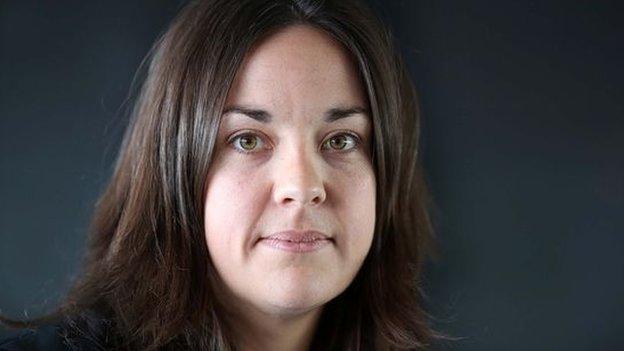
The 33-year-old MSP for the Lothian region represents the "younger generation" of MSPs at Holyrood.
Although only a member of the Scottish Parliament since 2011 she has impressed in parliament and in the media.
Ms Dugdale has the advantage of being a rising star at Holyrood and not being part of the Westminster party.
She has ruled herself out of the contest, but has confirmed she will be standing for the deputy leadership.

Jenny Marra

Like Kezia Dugdale, Jenny Marra is young and inexperienced.
But the 36-year-old Labour list MSP for North East Scotland is seen as talented and a good future prospect for the party.
While there had been speculation that the time for that future had arrived sooner than anyone anticipated, Ms Marra has ruled herself out of the contest.
BBC Scotland Political editor Brian Taylor said: "Some would say it has worked for the Scottish Tories, having a young, relatively inexperienced leader.
"But the Tories ain't Labour. Labour have a huge number of MPs and different baggage to carry. Just ask Johann Lamont!"

Gordon Brown
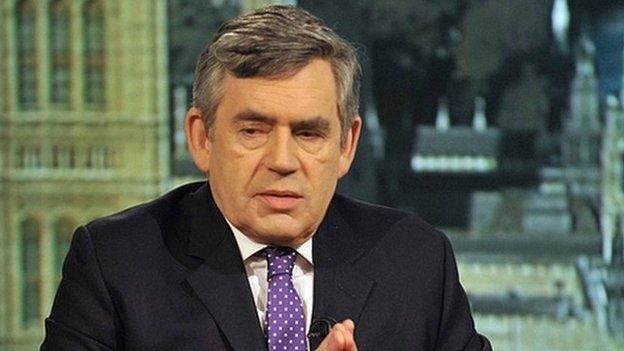
The former Labour prime minister is perhaps seen by some as yesterday's man but others such as Michael Connarty, Labour MP for Linlithgow and East Falkirk, said Mr Brown was "a towering figure" who was "speaking the language of the people of Scotland".
Mr Brown's interventions towards the end of the referendum campaign displayed that he is still a political heavyweight who wields substantial influence.
Mr Connarty told BBC Radio Scotland's Good Morning Scotland programme: "We should be talking about Gordon and Gordon alone. I'll be seeking him out and so will other people."
However, the Westminster MP for Kirkcaldy and Cowdenbeath has rebuffed calls to return to the front line.
A source close to Mr Brown said that he had no intention of running.
Following the referendum in which he played a key part by setting out a timetable for more powers for Holyrood, the former prime minister had joked that he was "too old to be the comeback kid and too young to be an elder statesman".

Jackie Baillie
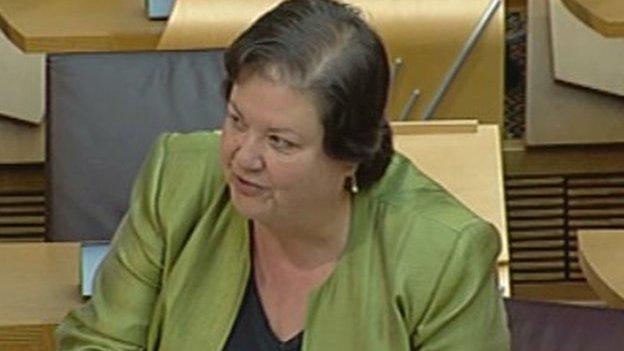
Having been an MSP since the beginning of the parliament in 1999, the 50-year-old is experienced and capable as a front bench spokesperson.
Ms Baillie has ruled herself out of the contest, saying she would rather play a "supporting role" than be leader itself.
However, she will speak for Labour at first minister's questions later this week.
If she puts in an effective performance against Alex Salmond, she might find herself facing calls to take on the role in the long-term.

Drew Smith
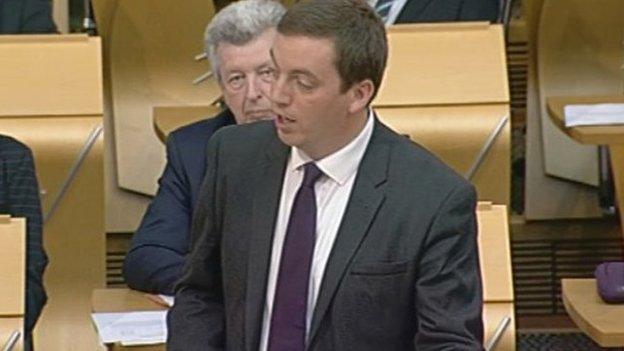
Another member of Scottish Labour's younger generation, 31-year-old Drew Smith has worked for the party in Scotland and at Westminster.
He represents Glasgow in the Scottish Parliament and is the party's spokesman on the constitution, having formerly spoken on social justice.
He sat on the committee which examined the legislation which paved the way for the referendum on Scottish independence.

Iain Gray
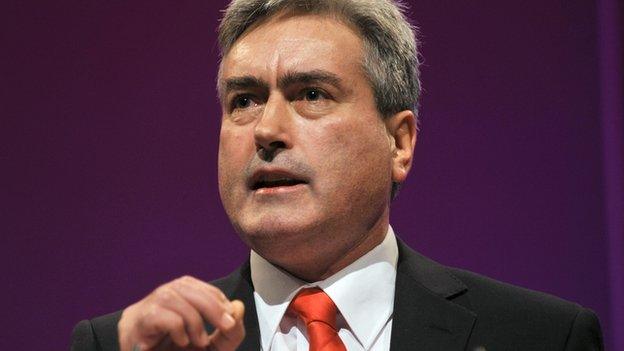
Former Scottish Labour leader Iain Gray was asked on Twitter by Holyrood magazine editor Mandy Rhodes if he intended to put his hat in the ring.
He responded with a straightforward: "No."
It could be a case of once bitten, twice shy for the 57-year-old MSP for East Lothian, who led Scottish Labour to defeat in 2011, when the SNP gained an unprecedented overall majority.
Mr Gray stepped down after the election but has returned to the frontline as the party's finance spokesman.
He is also one of two Labour representatives to the Smith Commission, which is considering plans for more powers for the Scottish Parliament.